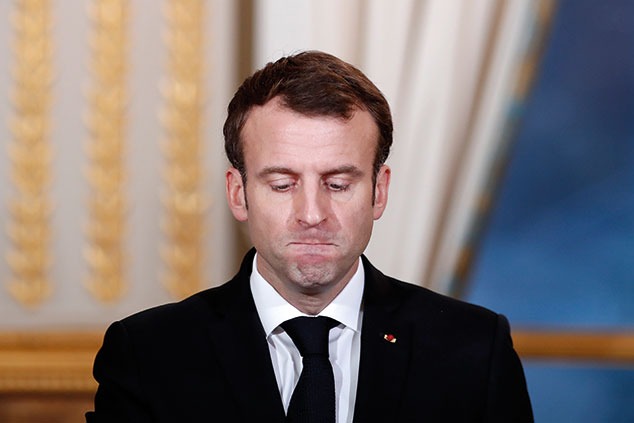
On Saturday, the fifth round of gilets jaunes (“yellow jacket”) protests in a month took place in France. The turnout was “smaller and more restrained” than past protests, says Alissa Rubin in The New York Times. That was partly down to a “shift in public mood” in the wake of a mass shooting in Strasbourg, but also due to concessions made by French president Emmanuel Macron, including a hike in the minimum wage and the scrapping of the fuel taxes that sparked the protests in the first place. Meanwhile, companies such as oil giant Total chipped in with year-end bonuses and promises of pay rises.
Yet while Macron’s presidency may have gained “a reprieve” for now, “its shape and direction seem certain to change”. Elected “on his promise to bring a revolution to France – in the economy, in the job market, in France’s social-welfare model”, the experience and his ongoing unpopularity “will force him to rethink his upcoming proposals to change laws on pensions and unemployment”.
Don’t count Macron out yet
Don’t automatically count Macron out, says The Economist. He may look “like a president who can be cowed by flying bricks and sagging polls”, yet the French leader “held firm” on many core issues. For example, he “insisted that he will not reverse an early decision to scrap France’s wealth tax”. That move “signalled that France was open for business” – bringing it back “would have suggested it had once again shut its doors”.
What’s more, he “gave no hint that he would delay or ditch any of his crucial labour-market overhaul”. This suggests his concessions are “not a surrender, but a tactical retreat”.
Macron has already achieved a huge amount in his time in office, says Der Spiegel. Not only has he “loosened the rules for firing employees and broken up the rigid wage-negotiation system”, but until the latest crisis he had also “lowered the budget deficit below the 3% mark for the first time since 2007”. Indeed, it could be argued that Macron has already reformed France “more profoundly than all the presidents before him – at least since Mitterrand”. In any case, he won’t be going anywhere in the near future – he “is relatively secure in the Élysée until May 2022 and enjoys an absolute majority in parliament”.
One rule for France
Yet the French president could face a new crisis sooner than many people realise, says Peter Conradi in The Sunday Times. The economic cost of his retreat has been to push France’s expected 2019 budget deficit to 3.4%, breaching the EU limit of 3%. The EU has waved this away on the assumption that it will be “temporary and exceptional”, which in turn has “provoked hollow laughter from Italy”, which was threatened with sanctions over a much smaller budget deficit.
The next domestic “crunch point” is likely to come amid changes to the “generous” pensions system, “which allows many to retire in their 50s”. And the European parliament elections in May could also prove challenging – polls show that his party is running a “distant second” to the far-right National Rally, led by Marine Le Pen.